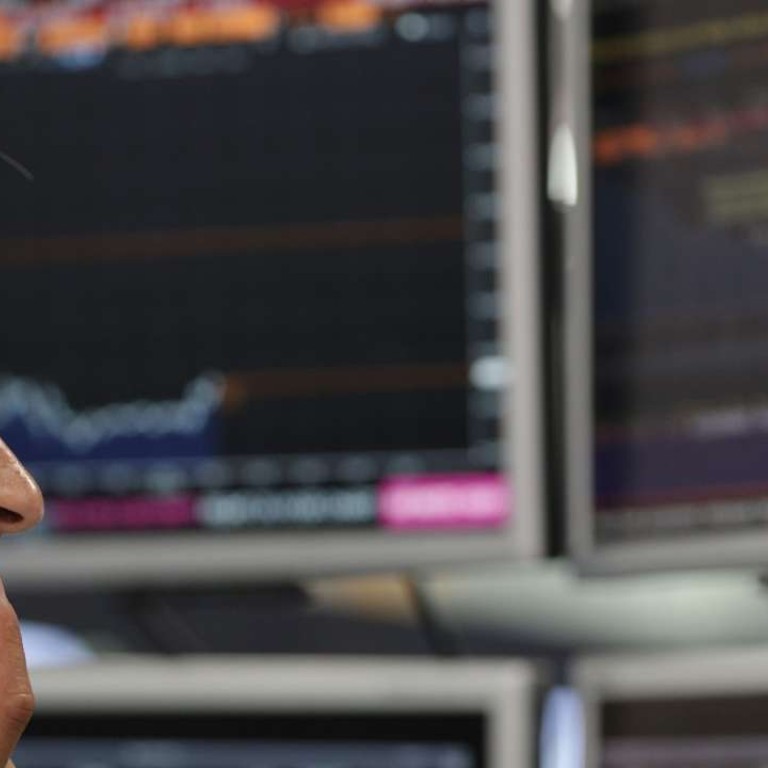
Why we shouldn’t buy into the bullishness in global markets
The resilience in global markets following the Brexit decision is at odds with rising political risk and slowing economic momentum
A cursory glance at the performance of global equity markets over the past three weeks suggests there is not a lot for investors to fret about these days.
The FTSE All-World Index, a leading gauge of global stock markets, currently stands just above its level on June 23, the day Britain voted to leave the European Union (EU), triggering a brief but sharp sell-off and plunging the UK and Europe into a protracted period of deep political and economic uncertainty.
On Wednesday, the US benchmark S&P 500 index hit a new record high amid better-than-expected corporate earnings.
The ‘bad news is good news’ narrative is back in vogue
Not only have investors shrugged off the potential damage and existential questions stemming from a British exit from the EU, they also appear unconcerned about last weekend’s botched military coup in Turkey - a member of NATO which has played a crucial role in both the West’s war against Isis and the EU’s efforts to stem the refugee crisis - which left nearly 300 dead and is likely to lead to an even more authoritarian government under president Recep Tayyip Erdogan.
While investors’ insouciance about Turkey is understandable given that the coup failed and could lead to a more stable, albeit repressive, political system, their apparent unconcern about the ramifications of the Brexit vote is perplexing, to say the least.
Why are markets proving so resilient in the face of a severe escalation in the risks and vulnerabilities confronting the global economy?
A new survey of market sentiment among bond and currency investors published by Bank of America Merrill Lynch (BAML) last week sheds some light on these issues.
According to the survey, the political and economic fallout from the Brexit vote is the number one concern for investors over the next 12 months, followed by the threat of a US recession and a “hard landing” for China’s economy.

More importantly, however, only 20 per cent of respondents believe that there will be a full, or “hard”, Brexit. Nearly 60 per cent of those surveyed believe that Britain and the EU will be able to negotiate a less disruptive arrangement in which the UK leaves the EU but becomes a member of the European Economic Area (EEA) and remains inside the European Single Market, the so-called “Norway” option.
Respondents also believe that the collateral damage of the Brexit vote across Europe will be limited.
Only 17 per cent of those surveyed believe another member state will leave the EU while 55 per cent of respondents believe the bloc will stay intact after Britain leaves.
This may partly explain why markets are taking a fairly sanguine view of Britain’s decision to withdraw from the EU.
Yet the main reason why post-Brexit market conditions are so far proving relatively benign is because the “bad news is good news” narrative is back in vogue.
Markets are treating negative economic and financial developments as positives on the grounds that they make it more likely that further stimulus measures will be undertaken - particularly in Japan where expectations are running high for a coordinated burst of fiscal and monetary stimulus at the end of this month.
However, for a sign of the extent to which monetary policy has reached its limits, look no further than the IMF’s latest set of economic forecasts published on Tuesday. Not only did the IMF shave a full percentage point off its forecast for UK growth next year - it now expects Britain to grow 1.3%, still more optimistic than most private sector forecasts - it also warned that the Brexit vote “implies a substantial increase in economic, political and institutional uncertainty, which is projected to have negative macroeconomic consequences, especially in European economies”.
This may already be happening.
On Tuesday, a closely watched gauge of German investor confidence, published by the ZEW Centre for European Economic Research, fell to its lowest level since November 2012.
Central banks are having enough problems just stabilising markets, never mind helping underpin growth.
The post-Brexit improvement in market sentiment over the past three weeks is worryingly premature. While the plunge in the yields on government debt - most European and Japanese bond yields are in negative territory - is increasing investor appetite for higher-yielding assets, fuelling the rally in global equities, the IMF is right to warn of a “sizeable increase” in political risk.
Markets got Brexit wrong - and dramatically wrong at that.
This begs the question: what other major risks are investors not paying enough attention to, not least the possibility of Donald Trump winning November’s US presidential election?
Nicholas Spiro is a partner with Lauressa Advisory

